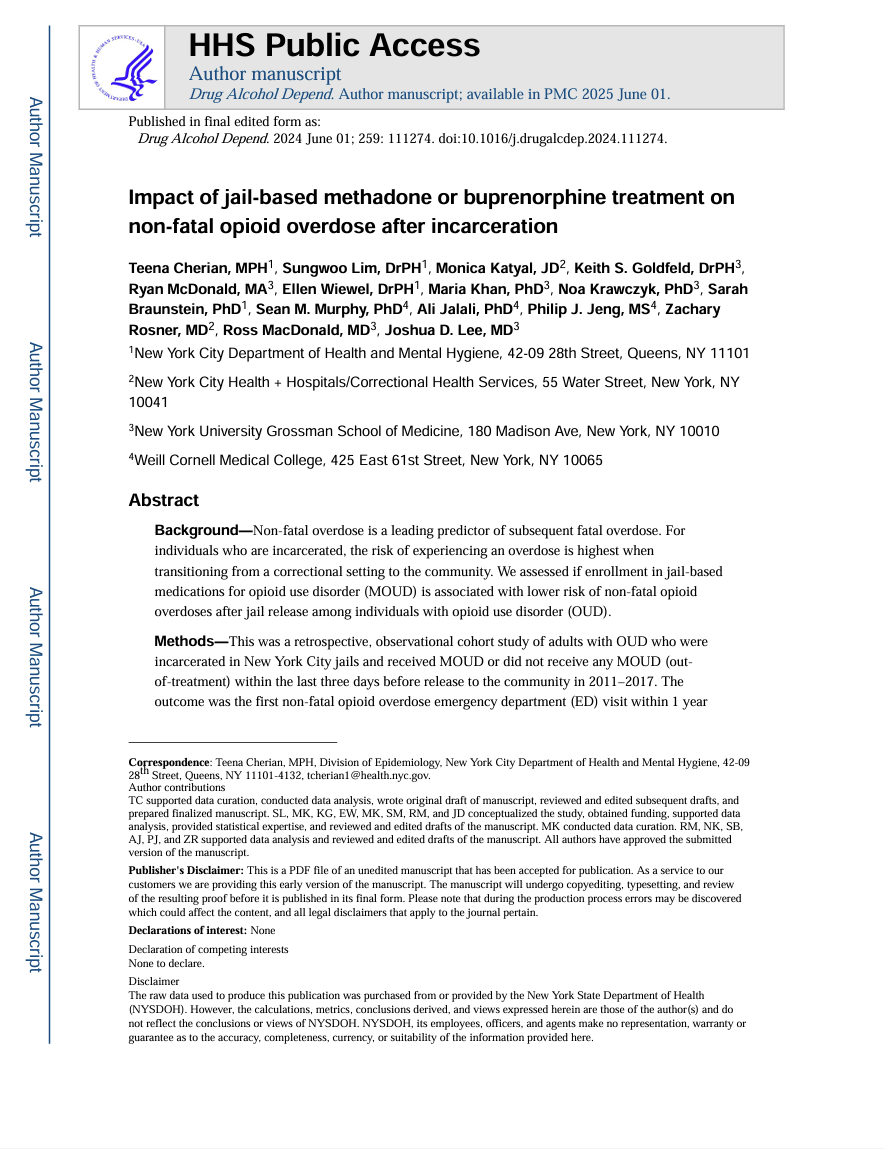Headline
Providing medications for opioid use disorder (MOUD) to people incarcerated in jail is linked to fewer non-fatal overdoses immediately following release.
Background
Incarcerated individuals with opioid use disorder have a high risk of overdose when transitioning to the community following release. A growing number of jails and prisons are providing MOUD to individuals prior to release. This study measured the rate of non-fatal opioid overdoses within one year of release from New York City jails among adults who received MOUD and individuals who received no treatment.
Findings
Electronic medical records and state emergency department visit data from 2011 to 2017 were used to compare reported overdoses amongst 8,660 adults receiving MOUD within three days of their release with 10,163 adults who received no treatment. Non-fatal overdoses were 15% lower in the MOUD group for the first two weeks following release, with no changes observed between the two groups from 15 to 365 days. Individuals that received MOUD were more likely to be experiencing homelessness, have severe mental illness, and have previous visits to jail.
Policy/Program Takeaways
The findings of this study are consistent with other research on the impact of MOUD in reducing overdoses following release from a carceral setting. Policymakers and providers can consider additional supports needed to improve outcomes in the months following release.

